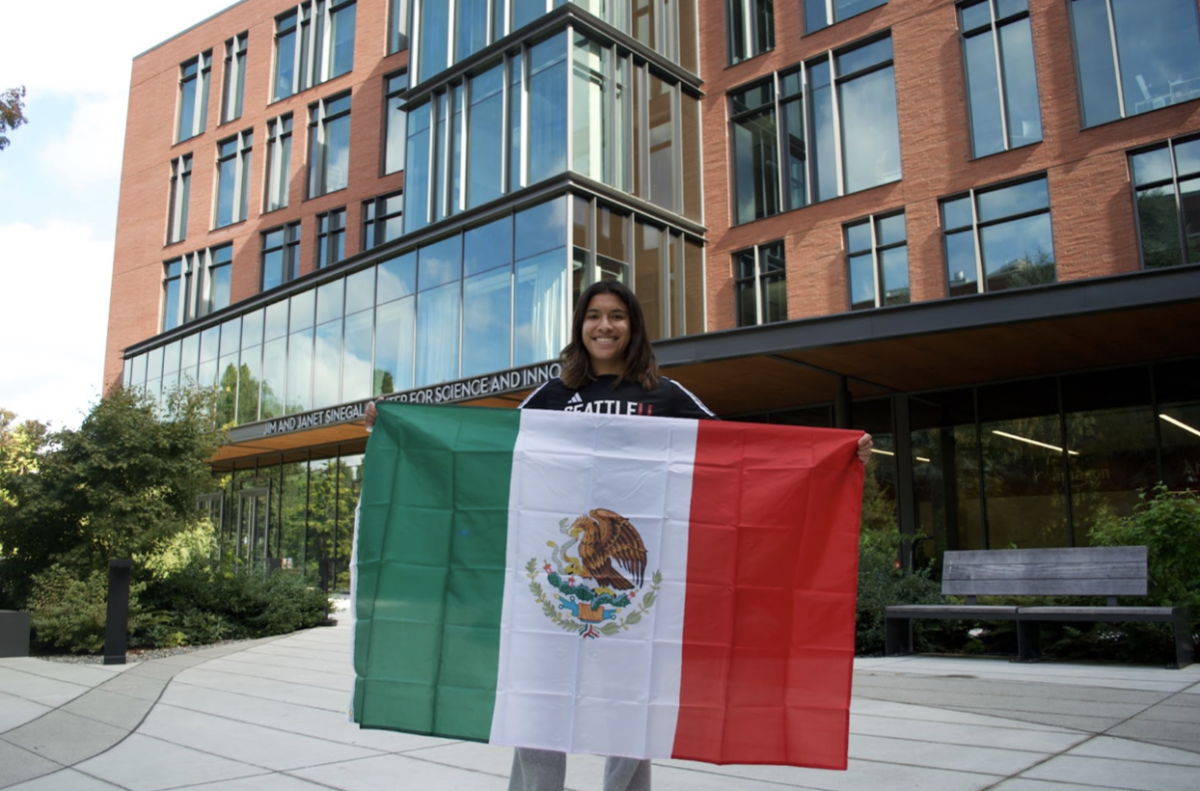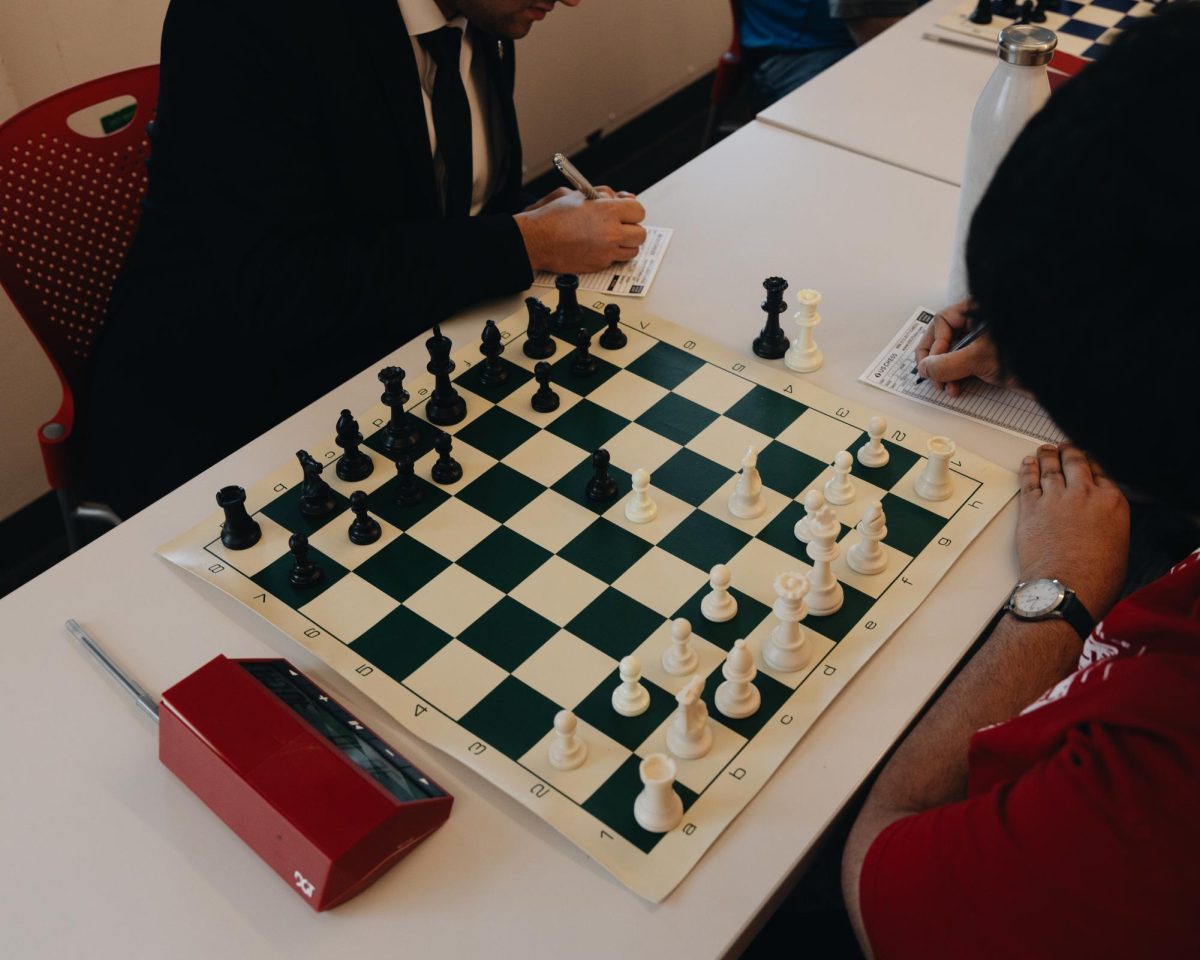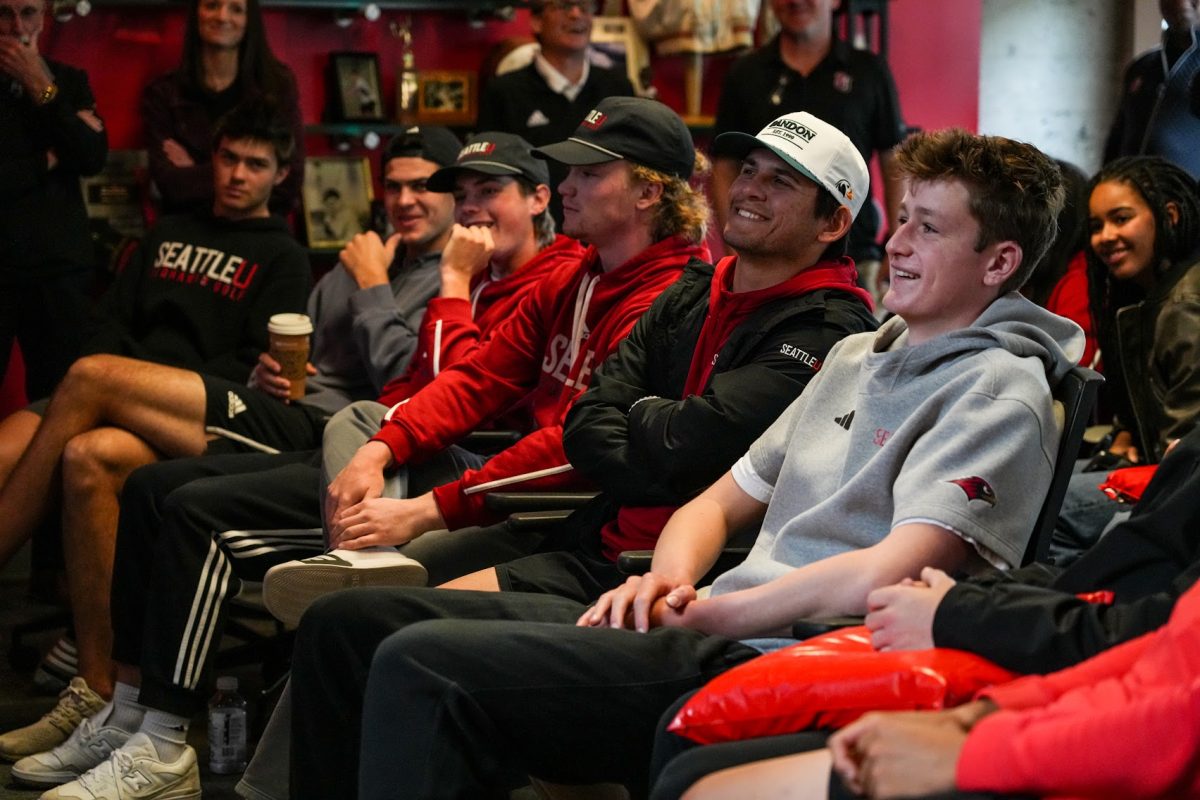Scoring the game-winning penalty to send your team to the semi-finals of a World Cup is a situation Julieta Peralta, now a junior defender for Seattle University Women’s Soccer, couldn’t have ever dreamed of.
After starting the game on the bench, her coach, Monica Vergara, called Peralta’s name into the dying minutes of an extra time 2-2 quarterfinal game between Mexico and Ghana in the 2018 FIFA U-17 World Cup. Sudden death began soon after, and as the fourth penalty-taker, Peralta lined up, took a deep breath and scored in what she called the “highlight of [her] career.”
Peralta is part of a generation of women that saw their opportunities in soccer increase with the creation of the Liga MX Femenil in 2016, the first-ever professional women’s soccer league in Mexico.
“At that time, I was just like 15 years old, so I was like okay, that’s really cool for the older girls, but I never saw myself actually participating,” Peralta said.
The creation of the league opened the door for Peralta to pursue what she called a “dream to come to the U.S. and have a scholarship.” By playing under the youth league roster spot, Peralta had the opportunity to achieve what many players in Mexico can’t, a successful soccer and academic career.
Soccer was more than just a means to that dream though—Peralta’s passion for the game is embedded in her family. The cultural impact of soccer throughout the country of Mexico influenced Peralta to start playing the game at 10 years old.
“Especially my dad’s side of the family. They are football fanatics. They love it. It’s almost like a religion,” Peralta said.
Peralta’s journey towards her dream began at just 15 years old, when Ana Galindo, her youth club coach, called her for a tryout at one of, if not the biggest club in Mexico, Club America. After an impressive tryout, Peralta would be playing at the Estadio Azteca, 10 minutes away from her home in Mexico City.
“Oh my God. Yes… and I started my journey with America,” Peralta said, recalling her reaction to the news.
In 2018, Club America Women’s team won the league title, a monumental moment for the club and Peralta’s career. But with a lack of playing time, she decided to make the move to Club Pachuca.
It was at Pachuca where she got a look into Tiki-Taka, a ball movement-intensive style of play, through the lens of Spanish coach Antonia Is Piñera. Before becoming the coach at Pachuca, Is Piñera served as the head coach for Spain’s U-17 women’s team that beat Peralta’s Mexican side in the 2018 FIFA U-17 World Cup final.
“At first I was like, ‘oh this girl like crushed my dream into pieces,’” Peralta said.
Nevertheless, Peralta was happy to be coached by Is Piñera, who implanted Peralta’s preferred style of Spanish soccer into Pachuca.
“It was great having her perspective on soccer. I love Spanish soccer because it’s very technical and I just like a lot of passes, I love it. It was great having her influence,” Peralta said.
After three years at Club Pachuca, Peralta signed with Seattle U in 2021, realizing her dream of both playing soccer and studying in the U.S.. She also found a community.
“These girls have just become my network of support. That’s why I am willing to give whatever it takes for them to help them grow as a person and as a soccer player,” Peralta said of her teammates at Seattle U.
Before her arrival in Seattle, Peralta had plans to attend the University of South Florida, until her current assistant coach, Chris Wells sent a message on Instagram and made her a last-minute pitch to get her on the team.
“I feel like something that really resonated with me about SU is the thing that they also just don’t see you as soccer players, they see you as the person you are and respect your goals that you have both in soccer and life,” Peralta said. “I think it’s one of the best decisions I’ve made in my life.”
Peralta is currently a cellular and molecular biology major. After finding out Seattle U did not offer a sports neurology degree, Peralta’s search for another degree to pursue led her to cellular and molecular biology. Brett Kaiser, professor of biology, has helped her journey as a scholar.
“[Dr. Kaiser] just had a great impact on myself academically and as a person… he’s very passionate about biology and it’s that passion that just gets to you,” Peralta said. “I’ve been doing research with him over the last two years, and we have built this great relationship,” Peralta said.
On and off the pitch, Peralta hopes her story inspires other women who have dreams of competing at the highest level.
“If there’s a little girl that’s from the Latinx community, I would like them to see that hard work with the right mindset, and hunger to pursue your dreams is possible even if it looks impossible,” Peralta said.
When comparing the game of soccer to the tribulations of life, Peralta said “como juegas en la cancha, vives en la vida,” which roughly translates to “the way you play in soccer is how you behave in life.”







![Welcoming the World Through Sport: Why Cricket Belongs at Seattle U [OPINION]](https://seattlespectator.com/wp-content/uploads/2025/04/cricke66_color_texture-1200x960.png)

Jon Michel
Oct 12, 2023 at 5:05 pm
So cool!